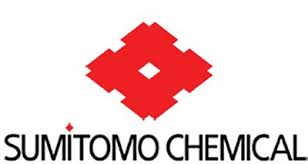
A polyethersulfone (PES) micro-powder additive called SumikaExcel™ 5003P, has proven ideal for boosting fracture toughness and resistance to micro-cracking for fiber-reinforced epoxy composites over a broad temperature range without negatively impacting dimensional stability, flame/smoke/toxicity (FST), creep resistance, modulus, impact, or yield strength.
The functional additive is widely used by the aerospace industry for prepreg and resin-transfer molded carbon fiber-reinforced epoxy, is gaining ground in epoxy composites for automotive, and could be used for high-performance sporting goods as well. The material is produced by Sumitomo Chemical Co. Ltd. (Tokyo), which will exhibit for the first time the material at the Composites & Advanced Materials Expo (CAMX) from October 16-18 in Dallas.
Generally speaking, PES is an amber-transparent, amorphous engineering thermoplastic known for its high temperature capabilities[1], high strength and impact resistance, excellent creep resistance at elevated temperatures and loads, very-good dimensional stability, low coefficient of linear thermal expansion (CLTE) over a broad temperature range, inherent flame retardance[2], low smoke, minimal outgasing, good and broad chemical resistance[3], and resistance to hot water (to 180oC). It is offered pelletized for injection molding, extrusion, and film processes and in powder form for cast films, filtration membranes, and as an epoxy additive for composites, high-temperature paints and coatings, and adhesives. PES grades are used in the aerospace, automotive, electrical/electronics, medical-device, and food-handling industries.
In its role as a functional additive for epoxy composites, specific grades with hydroxyl (-OH) end groups are used. The end groups react with glycidyl groups on the epoxy matrix to form a cross-linked, interpenetrating polymer network (IPN). Even though the additive is typically used at low letdown ratios of 2-12 wt-%, it adds greater flexibility to the IPN, which in turn boosts the toughness of the epoxy composite. SumikaExcel™ 5003P has a glass-transition temperature (Tg) of 230oC, which is higher than that typical of aerospace-grade epoxy resins (ranging from 120-200oC), and since it also has good stiffness and strength, it improves impact and crack resistance without compromising other thermo-mechanical properties. Especially important for aerospace applications, it does all this without affecting FST or the ability to mold and hold very-tight tolerances. Although it is most commonly used with high-performance carbon fiber-reinforced epoxy composites, it is equally effective in glass- or basalt-reinforced epoxy composites too.
Sumitomo Chemical is unique in the plastics industry as the world’s sole PES manufacturer that maintains dedicated PES polymerization facilities (in Chiba and Ehime, Japan) and also a dedicated micro-level powder grinding facility (in Phoenix, Ariz., U.S.). T
For the first time, Sumitomo Chemical Advanced Technologies will exhibit at CAMX 2018 in booth number G86 and will have information about SumikaExcel micro-powder additive as well as its other families of high-performance engineering thermoplastics, including SumikaExcel PES, SumikaSuper™ liquid crystal polymer (LCP), and Sumiploy™ polymer alloys on display for attendees.
Air Force 1













